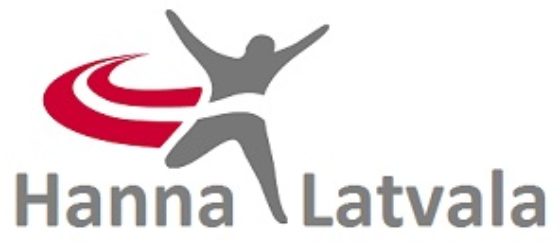Organic searches on the Internet play an essential role for commercial web pages. The web pages that appear in search engine result lists will be those that visitors pay special attention to without the administrators having to do anything.
These generate free traffic and make Internet users go from being merely interested to customers.
Therefore, having a good positioning is closely linked to a high sales volume. For more information, you can visit “SEO Communities” online or consult “Digitalmarketing.ae” to keep yourself updated about commercial web pages.
Providers of web pages for companies and online stores spare no effort in optimizing their web pages for search engines. Google is, in this respect, a great benchmark, but the optimization that has to be done to gain a good position is not an easy task.
More than 200 SEO factors influence the algorithm that creates the search results pages (SERP). Only a few of those factors are known, but there are others that are kept secret to prevent deliberate manipulation.
Thorough lists circulate among SEO specialists that contain current SEO factors and are considered probable or at least possible. Get consultancy from “SEO Services Dubai” if you want to get more information about current trending SEO factors.
Ranking Factors in Google
How to Optimize Web Pages for Google Search?
What is known about the Google algorithm is based on comments from Google workers in interviews or press releases, but it can also be found in the bases of patent applications, as well as verified through empirical observations and tests.
Therefore, the following list has no official validity, although the aforementioned positioning factors have proven effective in their daily use and web pages that are optimized according to these criteria achieve a good position in organic searches.
URL with Keywords
If a URL contains a keyword, the search engine deduces that the corresponding search has some relevance. Therefore, good positioning in Google is still related to the presence of keywords in URLs.
Over the years, keyword domains or subdomains have become less important and some SEO experts also assume that in this area there is a certain relationship between the word order of URLs and their positioning in search engines.
Therefore, the main keyword has more weight in the front of the URL and, in this sense, those cases where multiple reference possibilities are given should be avoided. Regardless of search engine ranking,
Keyword in Title Tag
Entering relevant search terms in the title tag of an HTML page is even more important than keywords in URLs.
This tag defines the title of a web page and becomes the most important content element and, in this regard, the signal sent to the search engine about the relevance of the page is especially intense.
In this aspect, the fact of assuming that your position at the beginning of the title has a positive effect on the search engine ranking also comes into play. The keywords in the title of the web pages are highlighted in the SERPs with the use of the bold letter.
Keyword Density
Even though keyword density is no longer as important to Google as it once was due to the risks of manipulation that exist, keywords in search engine texts are still useful in defining the topic of web pages.
In this, the frequency of the relevant search terms in each text plays a much smaller role than the relevance of these keywords for a given text.
To do this, Google makes use of the inverse document frequency factor or TF-IDF (Term Frequency Inverse Document Frequency) of a web page, that is, the keyword density in relation to the inverse frequency of documents.
This is where the so-called latent semantic indexing (LSI) comes into action, which causes semantic relationships to be established within the same context and, therefore, with respect to the main words.
In order to obtain a good positioning, it is convenient that the texts offer various terminology possibilities of similar semantics for a given keyword, and that they also offer the most common synonyms.
Highlight Keywords
If the keywords of a text have been highlighted by means of HTML tags, the search engines interpret them as especially relevant within the text.
A text will be classified as relevant when a web search is carried out with the corresponding search terms and will therefore obtain a more positive positioning. Keywords or keyword phrases can be highlighted using bold, italic, underline, or font size.
Keywords in Headings
Placing the relevant search terms in the HTML H1 heading and in the subsection headings (H2 and H3) is a special case of keyword highlighting.
For Google, the keywords of these structural elements carry considerable weight, since they are highly relevant factors and make it easier to record the content of web pages.
Conjugation and Declension of Keywords
For Google, keywords are not fixed units, but the metasearch engine is able to attribute different morphological variants of a search term to a common lexeme.
In SERPs, not only web pages with exact match keywords are taken into account, but also those pages in which said conjugated or declined keywords appear.
In this respect, the conclusion is that the texts that contain keywords of exact match do not have as much value, since the conjugation of the search terms is a normal aspect of the writing of these texts.
Keywords in the Alt Attribute
Just as effective is the Google crawler’s interpretation of texts as it is deficient in its understanding of images. The information that a graphic file projects and the fact that it is related to the rest of the contents of the web page, can only be revealed by the information contained in the HTML code.
To obtain a good positioning in the search engine, it is essential that the most important data appear in the file name, in the title, in the legend and in the Alt attribute. In the latter case, this attribute is used to describe the content of the graphic file and will be displayed as alt text in case of display errors.
Structured Content
The contents must be clear and simple. In this sense, it is advisable to integrate structural elements such as lists, numbering or tables into web pages.
SEO experts take it for granted that a clear informational structure helps the crawler understand the content of a web page. Hence it follows that the elements that contribute to it will be considered as possible SEO factors.
Structured Content
Internal link anchor text
Internal links act as links to the subpages of a domain. Its task is to make it possible for visitors to open all the content on the website and to have access to data and products as soon as possible.
Internal links work best with optimized anchor text, and the better they describe the link’s destination, the easier navigation will be.
However, this is not only valid for visitors, but crawlers prefer anchor texts “that speak” and facilitate the interpretation of hyperlinks, a factor that Google takes into account when preparing its ranking.
HTTPS
Security is also essential in Internet searches. Those pages that use an encrypted connection using HTTPS (Hypertext Transfer Protocol Secure) are especially valued during indexing on Google, which includes the web pages that support this standard in SERPs.
Current Content
The positioning in Google is oriented so that the users obtain the maximum benefits.
In order to offer the user the best results for their search, Google is in charge of checking the current state of web pages and attaches great importance to new content. The same is true of web pages that keep their content up to date through regular updates.
Thus, the relevance of current searches on the Internet is reflected in the fact that Google provides the date of the last update for some search results, although this does not mean that only new or updated content occupies prominent positions in SERP.
Older content can also be set as authorities for some specific searches, so ultimately.
Text Size
The size of the text is a decisive feature to see how a topic has been deepened on a web page.
For this reason, longer texts are given a high informative value. SEO experts consider that the size of the text is related to the position in the SERP, which does not automatically mean that a longer text will get better positioning.
Singularity
Duplicate Content is classified by Google as irrelevant and negative. In cases where copyright is infringed, duplicate content can lead to the consequent exclusion from the search index. Website administrators must, in this regard, pay attention to the uniqueness of the content of their website.
However, this can lead to difficulties in circumstances such as those of large eCommerce platforms, which contain identical product subpages. An expensive but efficient solution is individualization through the development of genuine product descriptions.
Website Loading Speed
Google attaches great importance to the loading speed of web pages. In this sense, two aspects come into play: the delivery time of the HTML page and the loading duration of the entire web page, including graphic files and other elements such as JavaScript.
While the opening of the HTML page should be done in less than 500 milliseconds, Google gives the full load of a web page a threshold of 1.5 seconds to establish the difference between a good or bad load speed.
Reasons for slow loading times may lie in non-optimized graphics files, unnecessary style sheets, a large number of scripts, or excessive source code.
Since the duration of loading a web page is one of the SEO factors for the Google algorithm, it is recommended that web pages be optimized taking this into account.
In addition, the search engine also offers PageSpeed Insights, a free tool that analyzes the behavior of web pages and offers tips for optimization.
Error Free HTML
An HTML code full of errors can cause the quality of a web page to drop, which is why SEO experts consider HTML errors as negative SEO factors, although Google has not officially confirmed this. Some high authority SEO Companies tried to clear this factor. But some of us are still unaware of this.
To reduce the risk of devaluation, it is recommended that web page administrators strive to avoid errors in their HTML code. One possibility is to check the conformity of the new HTML code through the Markup Validation Service validation tool, created by World Wide Web Consortiums (W3C).
Optimization for Mobile Versions
Until now, optimization for web pages with mobile versions has only affected SEO as a SERP for searches on mobile devices. Those web pages that are not optimized for use with smartphones or tablets get worse rankings in Google searches.
In the desktop version, however, the SEO factor of “optimization for mobile versions” does not have any impact. To verify the level of optimization for mobile versions of a web page, specialists can access specific free Google tools .
Optimization for Mobile Versions
Multimedia content
Web pages whose texts are complemented by images, videos and other multimedia elements not only arouse the interest of visitors, but such multimedia content will be valued by Google as a quality brand.
The transmission of data through the various channels has an added value for users and multimedia content helps web pages to obtain a good position in the Google ranking.
Readability
There is no doubt that Google evaluates the comprehensibility of the texts on web pages. However, it is not known whether such information is integrated into the search algorithm or how it is evaluated.
On the one hand, low reading requirements and a low reading level could have a positive impact on search engine ranking, since simple texts are more understandable for everyone. On the other hand, a higher reading level possibly indicates higher quality.
In this context, the readability index can be useful to differentiate filler texts from quality web content. Regardless of this, web page administrators need to be concerned about content being readable by users.
Quality Outbound Links
Outbound links are those links hosted on one web page and redirecting to another web page. Crawlers are programmed in such a way that they can track certain outbound links and if these outbound links lead to quality pages, this will positively influence Google’s ranking.
In addition, these will help the crawler to define the theme of a web page. A moderate use of them is recommended, since a large influx of outgoing links can distract attention from your own content.
To avoid the presence of broken links, it is essential to check the destination of the links regularly and, in the event that many of them do not lead to any type of information.
Inbound Links
Incoming or external links are those links that, contrary to what happens with outgoing links, are hosted on other pages and redirect to the website itself.
Among best SEO experts, it is considered very probable that there is a correlation between the inbound links of a web page and its positioning in Google search, and this statement is reinforced by the fact that many web pages that occupy the first positions SERPs have a high quality inbound link profile.
This is why professional web positioning attaches so much importance to improving the external link structure of a web page. A high density of quality inbound links often has a positive impact on Google’s ranking.




